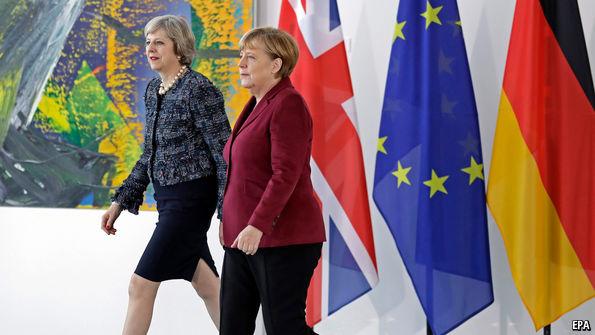The United Kingdom and Germany have announced a landmark agreement to mutually defend each other, marking a significant reset in bilateral relations. The pledge, unveiled in a joint statement on Wednesday, signals a deepening security partnership between the two European powers amid growing geopolitical uncertainties. This move comes as both nations seek to strengthen their cooperation on defense and foreign policy, highlighting a renewed commitment to collective security in a rapidly evolving global landscape.
UK and Germany Reinforce Defense Pact Amid Renewed Diplomatic Engagement
The United Kingdom and Germany have committed to a robust defense alliance, marking a significant milestone in their evolving bilateral relationship. This renewed cooperation comes as both nations seek to address growing geopolitical uncertainties and security challenges across Europe and beyond. Central to the pact is a pledge of mutual defense, ensuring that each country will stand firmly behind the other in the event of external aggression. Officials highlighted the agreement as a strategic move to enhance deterrence and signal unity within NATO’s key European members.
Key components of the pact include:
- Joint military exercises to improve interoperability and readiness.
- Information sharing on emerging threats and intelligence coordination.
- Integrated defense planning aimed at streamlining command structures.
Analysts note that this alliance could reshape security dynamics, particularly in response to increasing pressures from Russia’s assertive policies and other global actors. The partnership underscores an era of recalibrated diplomacy where both London and Berlin are prioritizing strategic defense collaboration to safeguard peace and stability in the region.
| Aspect | UK Role | Germany Role |
|---|---|---|
| Military Exercises | Lead air combat drills | Coordinate ground troop deployments |
| Intelligence Sharing | Cybersecurity expertise | Signal intelligence analysis |
| Command Integration | Provide naval command support | Develop joint strategic frameworks |
Strategic Implications of the Bilateral Security Commitment for European Stability
The new bilateral security pact between the UK and Germany marks a pivotal shift in European defense dynamics, signaling a robust commitment to collective resilience amid rising geopolitical tensions. This alliance not only reinforces mutual deterrence against potential aggressors but also reshapes the strategic calculus of NATO and the EU. By pledging reciprocal defense obligations, both nations aim to bridge defense capability gaps and foster seamless operational coordination, enhancing the overall stability in a region increasingly challenged by complex security threats.
Key elements driving this strategic realignment include:
- Enhanced intelligence sharing: Streamlining cross-border communication to preempt and neutralize emerging threats.
- Joint military exercises: Building interoperability and readiness across diverse terrains and combat scenarios.
- Integrated defense procurement: Harmonizing equipment standards to optimize resource allocation and logistical support.
| Aspect | UK Contribution | Germany Contribution |
|---|---|---|
| Naval Support | Carrier Strike Group | Submarine Fleet |
| Air Defense | Eurofighter Typhoon | Patriot Missile Systems |
| Cybersecurity | Cyber Command Unit | Federal Cyber Agency |
Recommendations for Strengthening Joint Military Cooperation and Intelligence Sharing
To deepen the UK-Germany military alliance, it is essential to establish a robust framework that facilitates real-time intelligence sharing and seamlessly integrates joint operational commands. Both nations should prioritize the development of secure communication channels and invest in cyber defense technologies to shield exchanged data from potential adversaries. Enhancing interoperability through joint training exercises will not only build trust but also ensure rapid, coordinated response capabilities during crises. Key focus areas include:
- Creation of a bilateral intelligence fusion center to streamline information flow
- Standardized protocols for threat assessment and information classification
- Regular joint cyber and counter-terrorism drills to test readiness
- Shared investment in emerging defense technologies such as AI surveillance systems
To visualize the strategic priorities for cooperation, the table below outlines proposed initiatives alongside expected impacts, offering a clear roadmap for stakeholders involved in this transnational effort.
| Initiative | Objective | Expected Outcome |
|---|---|---|
| Joint Intelligence Fusion Center | Centralize threat data exchange | Faster, unified threat response |
| Standardized Protocols | Harmonize communication and security procedures | Reduced information misinterpretation |
| Integrated Training Exercises | Enhance operational synergy | Increased battlefield readiness |
| Shared Technology Development | Advance defense capabilities | Cutting-edge innovation and deterrence |
Final Thoughts
As the UK and Germany formalize their commitment to mutual defense, this renewed partnership marks a significant recalibration of transnational ties in a complex geopolitical landscape. Both nations underscore the importance of collective security amid evolving global challenges, signaling a strengthened alliance that may reshape future cooperation within Europe and beyond. Observers will be watching closely to see how this pledge influences broader diplomatic and defense strategies in the months ahead.
















